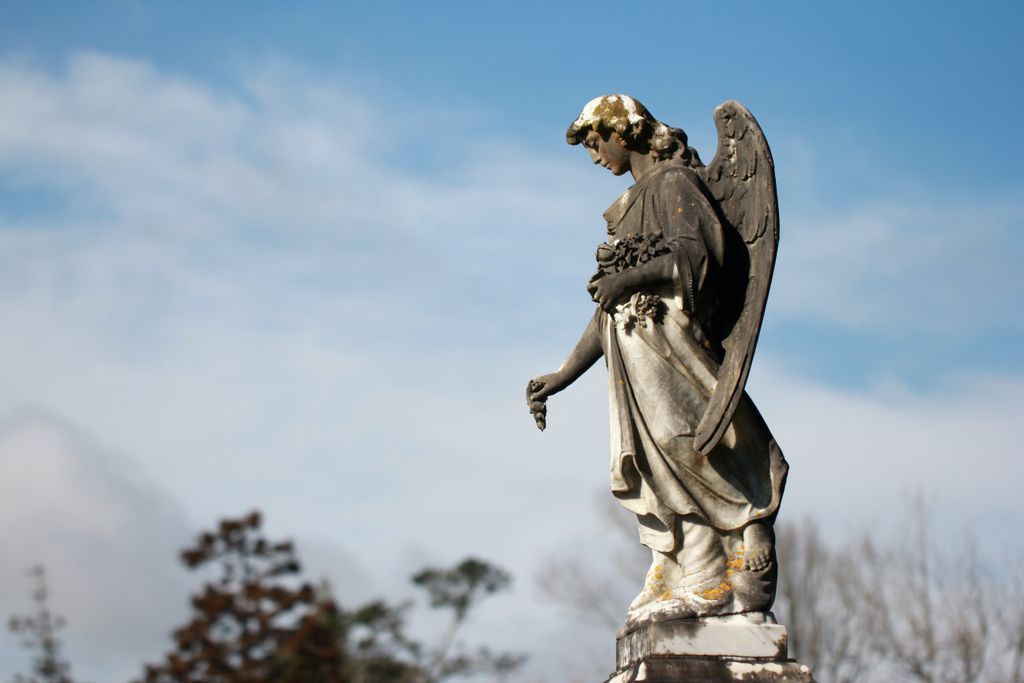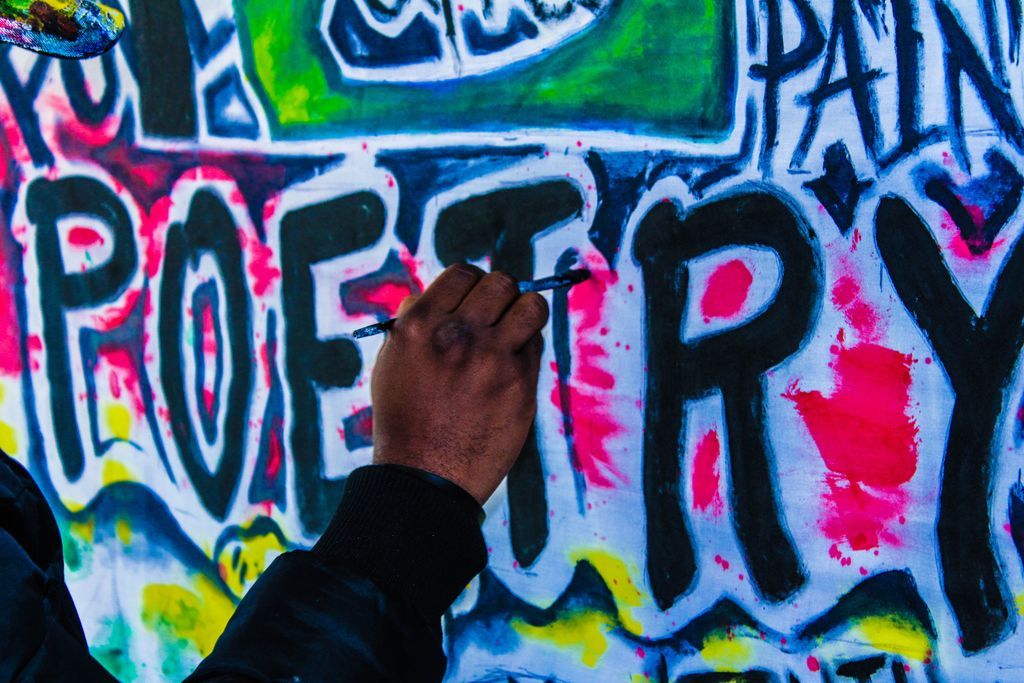There is a vast body of work in the world of poetry, as there are talented poets across the world penning lines of verse that can grab you by the throat, gently take your hand, and resonate through your heart like the sweetest notes of a violin.
It’s no surprise, then, that certain poems rise above the rest and stay with people throughout their lives. Or that the subject matter of certain poems pertain to a life event that many of us experience, whether that’s falling in love, losing a loved one, or going through a personal transformation.
We wanted to do a little research to find out what those poems are: What selected favorites are plucked from the world’s book of poetry and find themselves in wedding vows, eulogies, or sneak their way into popular culture. We found, however, that the most cited/favored poems skew heavily toward white poets, and starkly lacks the diversity we would hope to see. This is in large part the result of the racial, gender, and class bias at play when works are selected for the western literary canon.
A literary canon is a collection works that are considered essential and were incredibly important and influential for a certain time period or place. The canon tends to dictate what authors are taught in classrooms, since teachers have historically selected their readings from it; in short, this is where the “classics” live. The Great Gatsbys and the Gulliver’s Travels and the Beowulfs of literature. Just based on that small sample, you can already see the problem: the western canon is incredibly white and European-focused. For a short history lesson, the American literary canon didn’t become a thing until American literature classes became a thing in the 1890s. The educators who chose what to teach essentially shaped the early canon—and they were educated, privileged white men. A “canon of literature” gained traction in the 1920s, and its roster reflected its selectors. Those who did not have access to literacy, education, and higher socioeconomic status, namely everyone else except for white men (and some white women), were excluded from the canon.
Nothing changed for decades. The canon did not include Black American authors until the Civil Rights era. Harold Bloom’s 1995 book defining the western canon listed 21 white male writers, three white female writers, and two South American male writers (Pablo Neruda and Jorge Luis Borges). The canon has been expanding and reforming to include literature from all over the world, but the expansion has been slow going, which brings us back to poetry. The average person’s exposure to poetry is relatively limited unless poetry is really, really their thing, and their exposure tends to come from what they’re taught in school or what shows up in popular culture, which perpetuates this limited, white Euro-centric view of the poetry out there. Hopefully with increased exposure and literary canon reform, the most cited poems will grow far more diverse to reflect the true body of work in the poetry world.
This is by no means an exhaustive list; only one poem per author was selected for the sake of brevity, since a number of the below poets had multiple poems show up numerous times. If the title contains a link, then there’s only an excerpt of its more famous lines displayed instead of the entire poem.
Poems Read at Weddings
These poems most often find themselves inserted into wedding vows or read to the couple by their wedding party. We cross referenced multiple wedding-centered poetry lists and selected the poems that showed up in almost every one of those lists.
[i carry your heart with me(i carry it in)] by E.E. Cummings
i carry your heart with me(i carry it in
my heart)i am never without it(anywhere
i go you go,my dear;and whatever is done
by only me is your doing,my darling)
i fear
no fate(for you are my fate,my sweet)i want
no world(for beautiful you are my world,my true)
and it’s you are whatever a moon has always meant
and whatever a sun will always sing is you
here is the deepest secret nobody knows
(here is the root of the root and the bud of the bud
and the sky of the sky of a tree called life;which grows
higher than soul can hope or mind can hide)
and this is the wonder that’s keeping the stars apart
i carry your heart(i carry it in my heart)
Sonnet 18 by William Shakespeare
Shall I compare thee to a summer’s day?
Thou art more lovely and more temperate:
Rough winds do shake the darling buds of May,
And summer’s lease hath all too short a date; …
Sonnet 17 by Pablo Neruda
…I love you without knowing how, or when, or from where,
I love you directly without problems or pride:
I love you like this because I don’t know any other way to love,
except in this form in which I am not nor are you,
so close that your hand upon my chest is mine,
so close that your eyes close with my dreams.
She Walks in Beauty by Lord Byron
She walks in beauty, like the night
Of cloudless climes and starry skies;
And all that’s best of dark and bright
Meet in her aspect and her eyes:
Thus mellow’d to that tender light
Which heaven to gaudy day denies…
You Came, Too by Nikki Giovanni
I came to the crowd seeking friends
I came to the crowd seeking love
I came to the crowd for understanding
I found you
I came to the crowd to weep
I came to the crowd to laugh
You dried my tears
You shared my happiness
I went from the crowd seeking you
I went from the crowd seeking me
I went from the crowd forever
You came, too
How Do I love Thee? by Elizabeth Barrett Browning
How do I love thee? Let me count the ways.
I love thee to the depth and breadth and height
My soul can reach, when feeling out of sight
For the ends of being and ideal grace.
I love thee to the level of every day’s
Most quiet need, by sun and candle-light.
I love thee freely, as men strive for right.
I love thee purely, as they turn from praise.
I love thee with the passion put to use
In my old griefs, and with my childhood’s faith.
I love thee with a love I seemed to lose
With my lost saints. I love thee with the breath,
Smiles, tears, of all my life; and, if God choose,
I shall but love thee better after death.
Poems Read at Memorials
These poems are woven into eulogies, read at funerals, or written on memorial cards. The works below were once again selected based on the frequency they appeared in multiple lists for poems that others had chosen to use at funerals.

In Memoriam A.H.H. by Alfred Lord Tennyson
…I hold it true, whate’er befall;
I feel it, when I sorrow most;
‘Tis better to have loved and lost
Than never to have loved at all.
Do Not Stand at My Grave and Weep by Mary Frye
Do not stand at my grave and weep,
I am not there, I do not sleep.
I am in a thousand winds that blow,
I am the softly falling snow.
I am the gentle showers of rain,
I am the fields of ripening grain.
I am in the morning hush,
I am in the graceful rush
Of beautiful birds in circling flight,
I am the starshine of the night.
I am in the flowers that bloom,
I am in a quiet room.
I am in the birds that sing,
I am in each lovely thing.
Do not stand at my grave and cry,
I am not there. I do not die.
Death is Nothing At All by Henry Scott Holland
Death is nothing at all.
I have only slipped away to the next room.
I am I and you are you.
Whatever we were to each other,
That, we still are…
Remember by Christina Rossetti
Remember me when I am gone away,
Gone far away into the silent land;
When you can no more hold me by the hand,
Nor I half turn to go yet turning stay.
Remember me when no more day by day
You tell me of our future that you plann’d:
Only remember me; you understand
It will be late to counsel then or pray.
Yet if you should forget me for a while
And afterwards remember, do not grieve:
For if the darkness and corruption leave
A vestige of the thoughts that once I had,
Better by far you should forget and smile
Than that you should remember and be sad.
Remember Me by Margaret Mead
To the living, I am gone.
To the sorrowful, I will never return.
To the angry, I was cheated,
But to the happy, I am at peace,
And to the faithful, I have never left…
Poems in Pop Culture
The poems below were selected based on how frequently they appear in various pop culture mediums and how often snippets of the poems are quoted in the most unlikely places. For instance, the This is Just to Say memes, The Raven appearing in songs and TV episodes like The Simpsons, and various other pop culture quotes you’ve heard out of context and had no idea where it actually came from, like “water, water, everywhere, but not a drop to drink,” and “O captain! My captain!”

This Is Just to Say by William Carlos Williams
I have eaten
the plums
that were in
the icebox
and which
you were probably
saving
for breakfast
Forgive me
they were delicious
so sweet
and so cold
The Raven by Edgar Allen Poe
Once upon a midnight dreary, while I pondered, weak and weary,
Over many a quaint and curious volume of forgotten lore—
While I nodded, nearly napping, suddenly there came a tapping,
As of some one gently rapping, rapping at my chamber door.
“’Tis some visitor,” I muttered, “tapping at my chamber door—
Only this and nothing more.” …
I, Too by Langston Hughes
I, too, sing America.
I am the darker brother.
They send me to eat in the kitchen
When company comes,
But I laugh,
And eat well,
And grow strong.
Tomorrow,
I’ll be at the table
When company comes.
Nobody’ll dare
Say to me,
“Eat in the kitchen,”
Then.
Besides,
They’ll see how beautiful I am
And be ashamed—
I, too, am America.
The Rime of the Ancient Mariner by Samuel Taylor Coleridge
…Water, water, every where,
And all the boards did shrink;
Water, water, every where,
Nor any drop to drink…
We Real Cool by Gwendolyn Brooks
THE POOL PLAYERS.
SEVEN AT THE GOLDEN SHOVEL.
We real cool. We
Left school. We
Lurk late. We
Strike straight. We
Sing sin. We
Thin gin. We
Jazz June. We
Die soon.
The Love Song of J. Alfred Prufrock by T.S. Eliot
…Do I dare
Disturb the universe?
In a minute there is time
For decisions and revisions which a minute will reverse…
O Captain! My Captain! by Walt Whitman
O Captain! my Captain! our fearful trip is done,
The ship has weather’d every rack, the prize we sought is won,
The port is near, the bells I hear, the people all exulting,
While follow eyes the steady keel, the vessel grim and daring;
But O heart! heart! heart!
O the bleeding drops of red,
Where on the deck my Captain lies,
Fallen cold and dead…
Poems Used As Inspiration
This collection is similar to the pop culture category in that all of the poems tend to show up in pop culture either in their entirety or have quotes extracted from them. They’re only listed separately because the poems themselves are more inspirational or philosophical in nature.

Still I Rise by Maya Angelou
You may write me down in history
With your bitter, twisted lies,
You may trod me in the very dirt
But still, like dust, I’ll rise…
One Art by Elizabeth Bishop
The art of losing isn’t hard to master;
so many things seem filled with the intent
to be lost that their loss is no disaster…
No Man Is an Island by John Donne
No man is an island,
Entire of itself,
Every man is a piece of the continent,
A part of the main.
If a clod be washed away by the sea,
Europe is the less.
As well as if a promontory were.
As well as if a manor of thy friend’s
Or of thine own were:
Any man’s death diminishes me,
Because I am involved in mankind,
And therefore never send to know for whom the bell tolls;
It tolls for thee.
The Road Not Taken by Robert Frost
…Two roads diverged in a wood, and I—
I took the one less traveled by,
And that has made all the difference.
Hope is the Thing With Feathers by Emily Dickinson
“Hope” is the thing with feathers—
That perches in the soul—
And sings the tune without the words—
And never stops—at all—
And sweetest—in the Gale—is heard—
And sore must be the storm—
That could abash the little Bird
That kept so many warm—
I’ve heard it in the chillest land—
And on the strangest Sea—
Yet—never—in Extremity,
It asked a crumb—of me.
Do Not Go Gentle Into That Good Night by Dylan Thomas
Do not go gentle into that good night,
Old age should burn and rave at close of day;
Rage, rage against the dying of the light…
Aedh Wishes for the Cloths of Heaven by W.B. Yeats
Had I the heaven’s embroidered cloths,
Enwrought with golden and silver light,
The blue and the dim and the dark cloths
Of night and light and the half-light;
I would spread the cloths under your feet:
But I, being poor, have only my dreams;
I have spread my dreams under your feet;
Tread softly because you tread on my dreams.
Source : What Are The Most Cited Poems?











